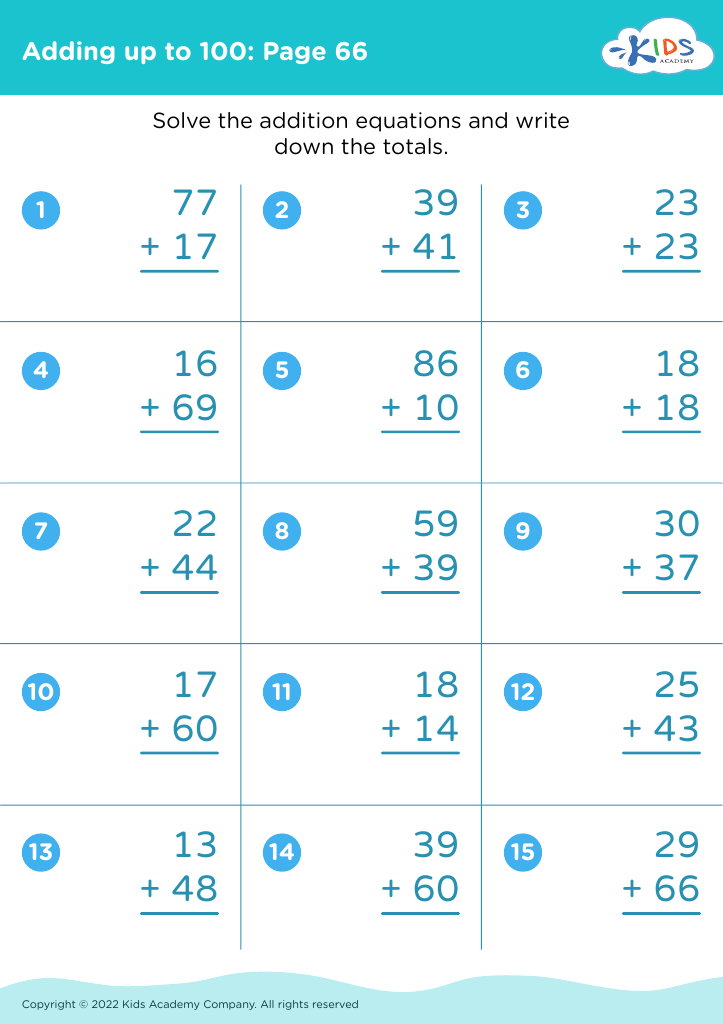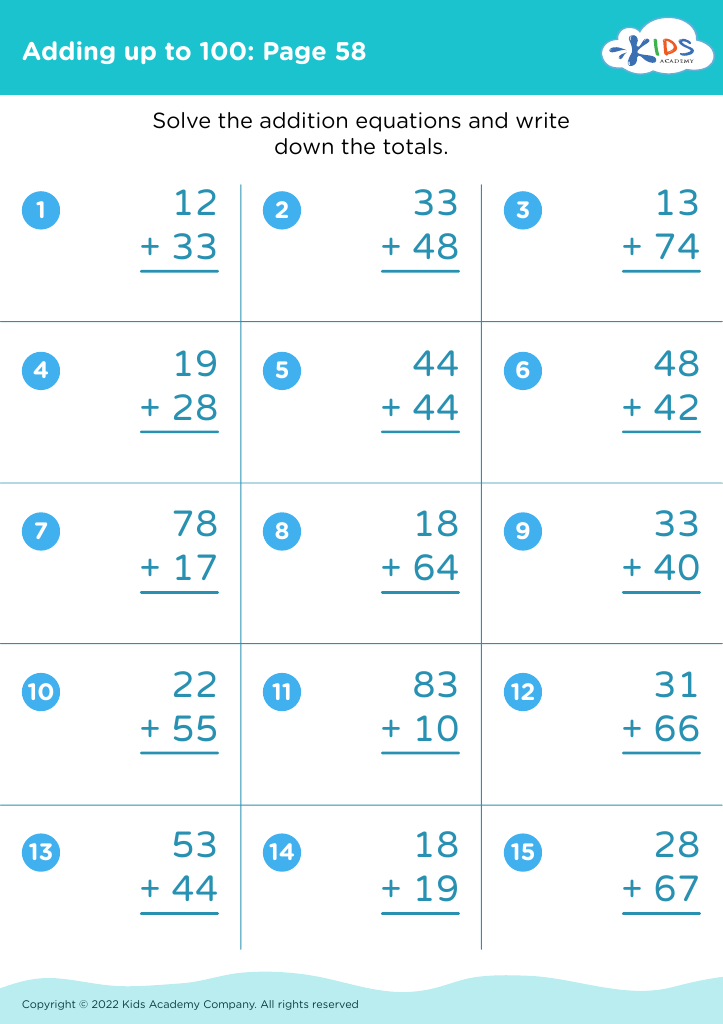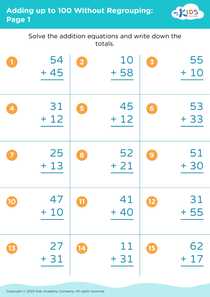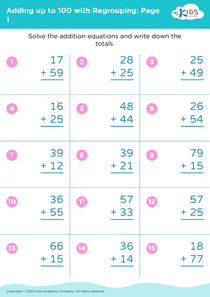Understand fractions Adding up to 100 Misc Worksheets for Ages 4-7
3 filtered results
-
From - To
Discover our engaging "Understand Fractions: Adding Up to 100 Misc Worksheets" designed for children aged 4-7. These worksheets aim to introduce early learners to the concept of fractions in a fun and accessible way. Through various activities, young students will explore how fractions relate to whole numbers, practice identifying fractions, and enhance their problem-solving skills. Each worksheet features colorful visuals and step-by-step instructions, making it easy for kids to grasp the basics of fractions. Perfect for classroom or home use, these resources foster a foundational understanding of math concepts essential for future academic success. Download now and make learning fractions exciting!
Understanding fractions and concepts of adding up to 100 is crucial for young learners, particularly those aged 4 to 7. At this formative stage, children develop foundational math skills that will serve them throughout their education and daily life. Learning about fractions promotes critical thinking, as children begin to comprehend how parts make up a whole. It also enhances their ability to recognize patterns and relationships between numbers, which are essential skills in everyday problem-solving.
Parents and teachers should prioritize these concepts because they encourage a positive attitude toward mathematics. Mastery of fractions and addition reinforces a child’s confidence and comfort with numerical relationships, laying the groundwork for more complex math concepts as they advance in their studies.
Additionally, engaging with fractions helps children understand real-world applications, such as cooking or sharing, making math relatable and meaningful. Using interactive, play-based approaches can inspire curiosity and joy in math learning. As they learn to add up to 100, children hone their skills in addition and subtraction, fostering a deeper understanding of numerical concepts. By investing time and effort in these early experiences, adults empower children to build a strong mathematical foundation and prepare them for future academic success.













